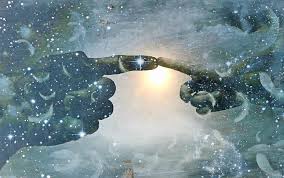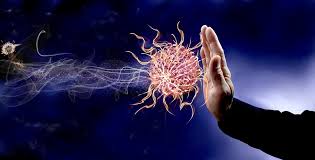
日本の禅を会得し、仏教が現代社会においてどのような意味を持つか、刺激的な著作を
発表し続けている、ディヴィッド・ロイ。あなたのこれからの人生にとって大切な役割
を果たす「カルマ(業)」について解説しています――バイリンガルで、どうぞ。
David R. Loy has mastered Japanese Zen Buddhism and been publishing provocative
books about the meanings of Buddhism in modern society. He gives us commentaries on
“karma” that plays the important role for your life in the future――more to come both in
English and in Japanese.
Along with its twin, rebirth, karma has always been an essential Buddhist teaching, but
we don’t know how literally they should be interpreted. Karma is often taken as an
impersonal and deterministic “moral law” of the universe, with a precise calculus of
cause and effect comparable to Newton’s laws of physics. This understanding, however,
can lead to a severe case of “cognitive dissonance” for modern Buddhists, since the
physical causality that modern science has discovered about the world seems to allow
for no such mechanism.
「カルマ」は、双子のような存在にあたる「輪廻」と共に仏教の教えの本質だが、
私たちはそれらを言語でどのように解釈すればよいか分からない。通常、「カルマ」は
ニュートン物理学の法則に匹敵するほどの緻密な因果の計算によって、客観的且つ
決定論的な宇宙の道徳律として理解される。しかし、この理解は深刻な「認知的
不協和」を現代仏教にもたらす。なぜなら、現代科学が世界というものに関して発見
した物理的な因果関係は。このようなメカニズムを許容するようには見えないからだ。
I remember a Buddhist teacher’s reflections in the Holocaust in Nazi Germany during the
World War Ⅱ: “What terrible karma all those Jews must have had・・・” This kind of
fundamentalism, which blames the victims and rationalizes their horrific fate, is
something no longer be tolerated quietly. It is time for modern Buddhists and modern
Buddhism to outgrow it by accepting social responsibility and finding ways to address
such injustices.
第二次世界大戦時のナチス・ドイツのホロコーストに対して仏教指導者が取った
リアクションを私は今でも覚えている。「ユダヤ人はものすごく酷いカルマを持って
いたに違いない・・・。」このように犠牲者を咎め、彼らの恐ろしい結末を正当化する
ファンダメンタリズム(原理主義)は、もはや我慢ならない。今こそ現代の仏教徒が
社会的責任を受け止め、このような不正義を正す方法を見つけ、ファンダメンタリズム
から脱却すべきである。
The original Sanskrit term karma (kamma in Pali) literally means “action.” Karma is better
understood as the key to spiritual development: how our life-situation can be transformed
by transforming the motivations of our actions right now.
サンスクリット語「karma(カルマ)」の語源は、文字通りでは「行為」を意味する。
「カルマ」は、スピリチュアルな発展を促進する鍵として理解すべきである。つまり、
「行為の動機を変容させることにより、私たちの生活がどのように変わるのか」という
ことだ。
The more I am motivated by greed, ill will, and delusion, the more I must manipulate the
world to get what I want, and consequently the more alienated I feel and the more
alienated others feel when they see they have been manipulated. This mutual distrust
encourages both sides to manipulate more.
欲望・悪意・幻想によって行為が動機付けられれば、それだけ私は望むものを手に
入れるために世界を巧みに操作しなければならない。そして、その結果として他の人々
が私にいいように操作されていると分かったとき、その人々は疎外感を持ち、また
私自身も疎外感を持つのだ。このお互いの不信感は、お互い巧みに操作し利用しようと
する心を促進する。
On the other side, the more my actions are motivated by generosity, loving-kindness,
and the wisdom of interdependence, the more I can relax and open up to the world. The
more I feel part of the world and genuinely connected with others, the less I will be
inclined to use others, and consequently the more inclined they will be to trust and open
up to me.
反対に、寛大さ・慈愛・無我の智慧(相互依存)によって行為が動機付けられればられる
ほど、私はよりリラックスして世界に心を開くことができる。自分が世界の一部で
あり、他の人々と繋がっていると感じれば感じるほど、他人を利用しようという思いは
薄れる。結果的に、他人から信頼を得ることができ、彼らも心を開くことになる。
In such ways, transforming my own motivations not only transforms my own life; it also
affects those around me, since what I am is not separate from what they are.
このように、自己の動機を変容することは、自身の人生を変容することだけではなく、
私たちの周りの人々にも作用するのだ。なぜならば、私という存在は周りの人々の存在
と乖離しているものではないからだ。
This more naturalistic understanding of karma does not mean we must necessarily
exclude other, perhaps more mysterious possibilities regarding the consequences of our
motivations for the world we live in. There may well be other aspects of karmic
cause-and-effect that are not so rapidly understood. What is clear in either case,
however, is that karma-as-how-to-transform-my-life-situation-by-transforming-my-
motivations-right-now is not a fatalistic doctrine. Quite the contrary: it is difficult to
imagine a more empowering spiritual teaching.
しかし、この「カルマ」の理解が、必ずしも絶対的な正解というわけではない。
なぜならば、他の「カルマ」理解に、まだ解明されていない「カルマ」の因果関係の
観点が含まれているかもしれないからだ。しかし、どちらにしても明白なのは、
「今ここにいる私の動機を変容させることで生活の状況が変化する」という意味の
「カルマ」は、宿命論的な定義ではないということだ。むしろ、宿命論とは全く正反対
なものである。
We are not told to accept passively the problematic circumstances of our lives. Rather,
we are encouraged to improve our spiritual lives and worldly situation by addressing
those circumstances with generosity, loving-kindness, and nondual wisdom.
私たちは、人生において生じている苦境を受動的に受け取るべきではない。むしろ、
私たちは寛大さ・慈愛・無我の智慧(相互依存)を以ってその状況を解明することで、
信仰の生活が促進され自身の世界の状況が改善されていくのだ。

Money, Sex, War, Karma: Notes for a Buddhist Revolution
- 作者: David R. Loy,Elijah Alexander
- 出版社/メーカー: Audible Studios on Brilliance audio
- 発売日: 2016/10/18
- メディア: MP3 CD
- この商品を含むブログを見る
■プライバシー・ポリシー
当ブログは、Amazon.co.jpを宣伝しリンクすることによってサイトが紹介料を獲得
できる手段を提供することを目的に設定されたアフィリエイト宣伝プログラムである、
Amazonアソシエイト・プログラムの参加者です。このプログラムにおいて、
第三者がコンテンツおよび宣伝を提供し、ユーザーからの情報を収集し、訪問者の
ブラウザーにクッキーを設定することがあります。プログラムにおいて情報の
扱いについてはAmazon.co.jpプライバシー規約をご確認ください。










